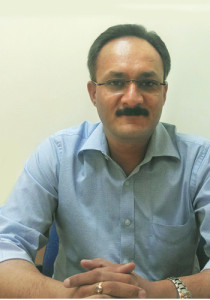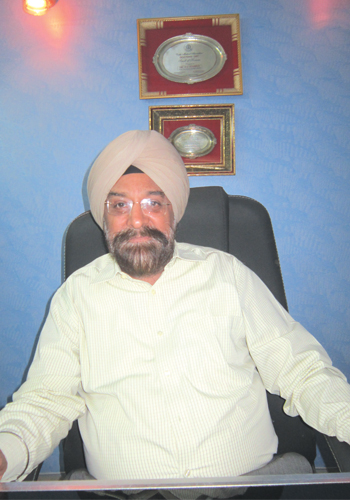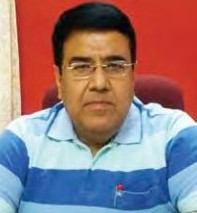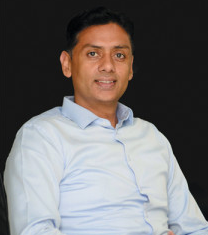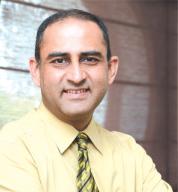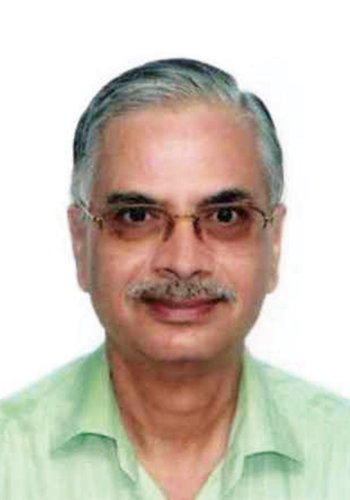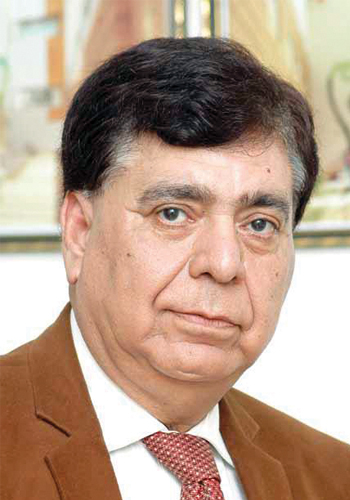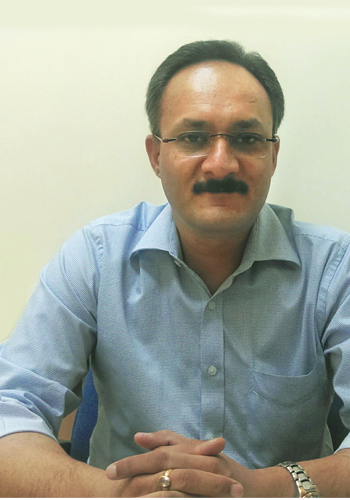
A small hospital in a high-income locality, Scope Hospital makes its services available to the rich and the poor alike. Its Director Dr Tarun Kumar explains to ENNs Rajesh K Sharma how the hospital makes it happen.

Can you tell us something about Scope Hospital?
Ours is a 25-bed hospital, with a fivebed ICU with ventilators. We also have a well-equipped operation theater.
What medical services are available in your hospital?
We have Laparoscopic Surgery, Dermatology, Pediatrics, Orthopedics and many other departments. We provide all types of surgeries except transplants and Cardiothoracic Surgery.
What kinds of patients do you cater to?
We mostly serve middle-class patients in Indirapuram and Ghaziabad. In addition to this, we have started a special OPD for the poorer families at just Rs 20.

How many patients do you deal with in a single day?
Since we started, we have been getting about 20 patients for our OPD. Overall, we get around 70 patients daily.
What are the technologies that you have implemented in the hospital?
We provide all basic facilities like Surgery, Gynaecology, Orthopedics and ENT. My specialty is Laparoscopic Surgery. We do all kinds of laparoscopic surgeries here, except Bariatric Surgery. In orthopedic surgeries,we have performed Total Knee Replacement (TKR) Surgery, hip transplant, knee transplant. In addition, we also do Trauma and Neurosurgery. Since, ours is a very small hospital, we do not do CT scans and MRIs due to shortage of space.
What prevents you from performing Bariatric Surgery here?
Bariatric Surgery is a very expensive surgery, costing nearly Rs four lakh. Patients wanting Bariatric Surgery prefer to go to the bigger hospitals. Also, if I start performing Bariatric Surgery here, I need to look at how many patients I can expect, since this is an expensive surgery. Bariatric Surgery requires teamwork between different disciplines like gastroenterologists and endocrinologist, which we dont have.
Do you think technology is helping bring down the costs in healthcare?
Yes of course, every new technology is beneficial to the patient if it helps in bringing down the costs.
Are you planning to implementany such technology in your hospital?
In the future, yes. The government is pushing to introduce a central repository of patient database. Please share your opinion on this. This is a good thing. But how long can the patient information be stored? Every hospital stores the patient information for five years. But, since we see a lot of patients, holding the information for long is not possible for us.
What are the challenges that a small hospital like yours faces when it wants to grow?
We are a 25-bed hospital, and if we want to grow, we need to provide more facilities like CT scans, MRIs and blood banks which require more space. While space is limited n Delhi-NCR region, smaller hospitals in Tier II and III cities are able to provide such facilities. However, in Delhi-NCR region, due to the Supreme Court ruling against nursing homes in residential areas, such an opportunity is not present to us. The government did provide us some relief in the form of increasing the FAR (Floor Area Ratio) from 10 percent to 25 percent. While the government says we cant run these companies in residential areas, we tend to think otherwise. We feel that we are giving facilities to patients. If a patient develops a serious problem, then he can go to a nearby hospital, instead of going to a bigger hospital elsewhere. We provide primary care to patients in such cases.
Does a small hospital like yours face a perception issue when patients compare it to bigger hospitals for similar treatment?
Yes, we do face perception challenges from patients who feel we may not be able to perform certain procedures. However, if we provide a good treatment to the patient and he is cured, then the perception changes. All these things depend on the doctor and the staff. The patient will feel that he can get the same treatment at a lesser
cost here, and doesnt need to go to a bigger corporate hospital.
“We do face perception challenges from patients who feel we may not be able to perform certain procedures. But, if we provide a good treatment to the patient and he is cured, then the perception changes.”
Are you empanelled on CGHS?
No, to be empanelled on CGHS, a hospital needs to be a 100-plus bed hospital. Also, a lot of smaller hospitals are moving away from CGHS empanelment because their charges are very less, and most have pending payments running in crores.
What kinds of ailments do you treat more commonly?
We treat all kinds of ailments, right from viral infections to seasonal infections.Last year, we treated a lot of dengue and typhoid patients. Besides that, we also get a lot of hypertension cases, as stress levels are quite high now-a-days.
What are your expectations from the new government?
The government should increase the number of beds in government hospitals as well as the quality of their healthcare. Patients always complain about the absence of doctors from the hospitals, when in fact the doctors are present, but the workload is immense.For a hospital like Scope Hospital, the government should decrease the criteria for the number of beds for a CGHS empanelment. It should also release the CGHS payments in a timely fashion.
Be a part of Elets Collaborative Initiatives. Join Us for Upcoming Events and explore business opportunities. Like us on Facebook , connect with us on LinkedIn and follow us on Twitter , Instagram.


